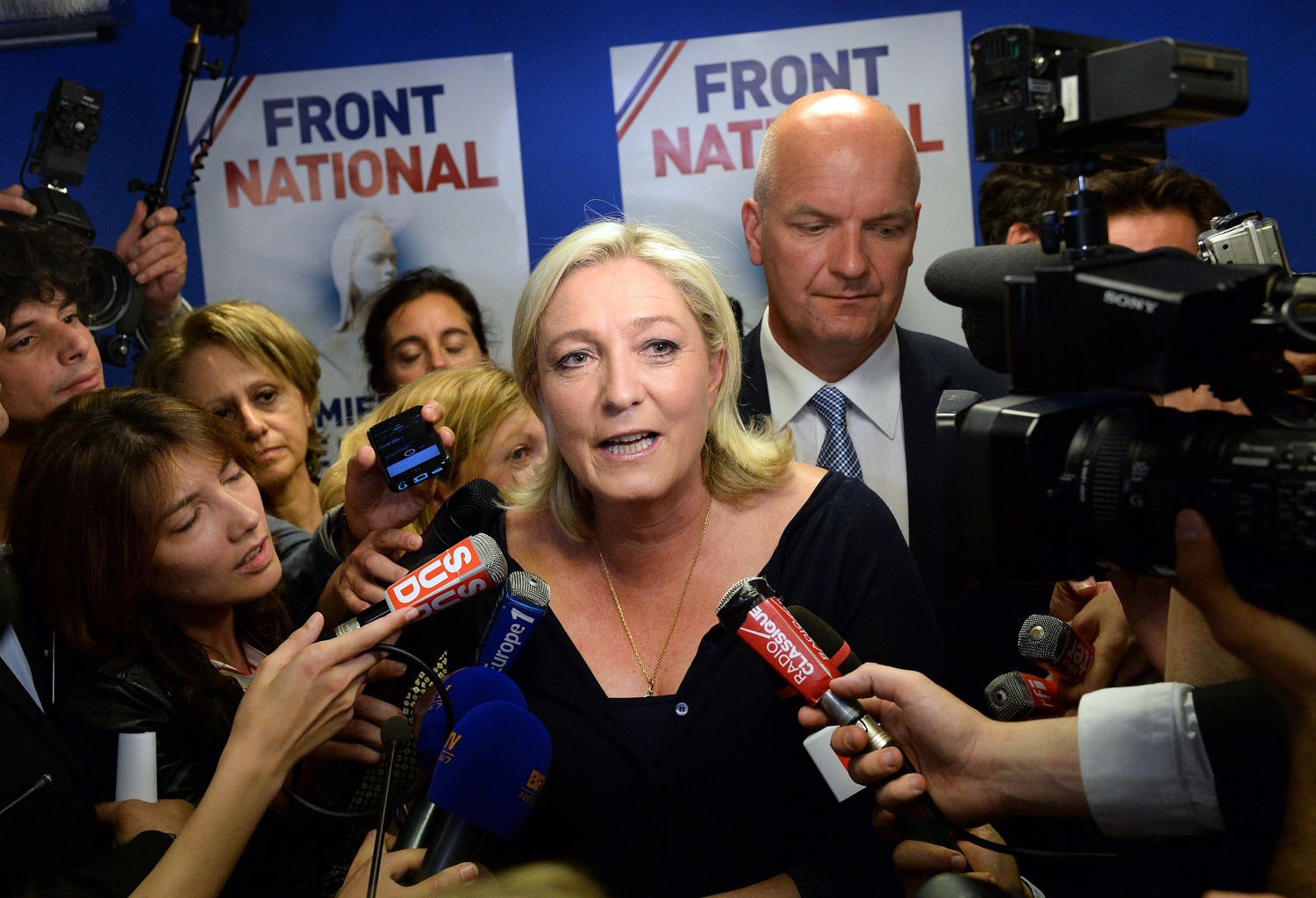
Far-right and Euroskeptic party gains across Europe in Sunday’s European Parliament elections have caused alarm among supporters of a closely integrated E.U.
European Parliament President Martin Schulz described the result as “a bad day for the European Union,” while French President François Hollande announced Monday talks immediately labeled a “crisis meeting” by local media.
Henri Malosse, the president of the European Economic and Social Committee, warned that “this may be the last European election if Europe does not change.”
Parties opposed to the E.U. made notable gains in staggered voting that began last Thursday. Marine Le Pen, leader of the French rightist National Front — the big winner in France with 26% of the vote — claimed the result showed that French voters demanded politics “of the French, for the French, with the French.”
“The sovereign people have proclaimed that they want to take back the reins of their destiny into their hands,” she said.
At the same time, the reluctance of Euroskeptic parties to work with the far-right shows that they are careful not to entirely alienate mainstream voters. The fiercely anti-E.U. United Kingdom Independence Party (more commonly known by its initials UKIP) is projected to win the U.K. elections but has already ruled out cooperating with the ultra-right National Front, a British party whose founder recently suggested that the Ebola virus might prove a solution to the immigration problem.
The leader for the Euroskeptic Alternative for Germany, Bernd Lucke, sent out the same message. “We won’t work with right-wing populists,” Lucke told Associated Press.
Far-right parties lost ground in the Netherlands but made significant gains in Denmark and Greece. Simon Usherwood, an expert on European politics at the University of Surrey in England, told CNN that extremist groups stood to benefit in the coming five years.
“They will get time for speaking in debates, the chairmanship of certain committees, which means that they’re going to have much more of a platform on which they can sell their message to voters,” he said.
More Must-Reads From TIME
- The 100 Most Influential People of 2024
- Coco Gauff Is Playing for Herself Now
- Scenes From Pro-Palestinian Encampments Across U.S. Universities
- 6 Compliments That Land Every Time
- If You're Dating Right Now , You're Brave: Column
- The AI That Could Heal a Divided Internet
- Fallout Is a Brilliant Model for the Future of Video Game Adaptations
- Want Weekly Recs on What to Watch, Read, and More? Sign Up for Worth Your Time
Contact us at letters@time.com